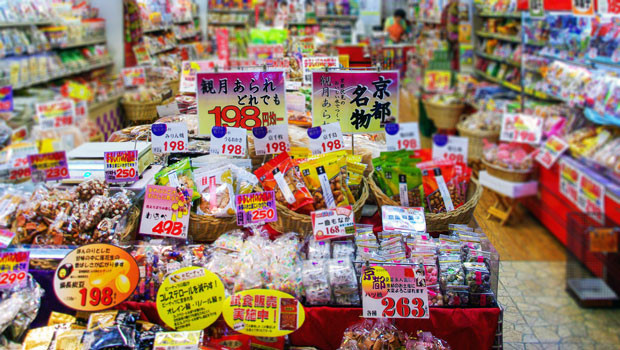Asia report: Stocks rise as Japan inflation hastens, China holds rates

Stock markets finished in the green in Asia on Tuesday, as fresh data out of Japan showed the country’s core inflation rocketing towards an eight-year high, while China’s central bank stood pat on key lending rates.
In Japan, the Nikkei 225 was ahead 0.44% at 27,688.42, as the yen weakened 0.36% against the dollar to last trade at JPY 143.72.
Robotics specialist Fanuc was up 0.86%, Uniqlo owner Fast Retailing added 0.76%, and tech investing giant SoftBank Group was 1.08% higher.
The broader Topix index added 0.45% by the end of trading in Tokyo, to settle at 1,947.27.
Core consumer price growth accelerated in Japan in August, according to data released earlier, beating both market forecasts and July’s increase.
According to the official data, core inflation was 2.8% year-on-year in the notoriously price-stagnant economy, making for the most rapid growth in almost eight years and remaining above the Bank of Japan’s 2% target.
The measure was up from the 2.4% rise in core prices recorded in July, and was just ahead of the 2.7% increase expected by analysts polled by Reuters.
“Yen weakness must also be playing a role at this stage, and will be the real focus of the upcoming Bank of Japan meeting this week,” said Craig Botham at Pantheon Macroeconomics.
“But the BoJ alone cannot stem the tide.
“We expect little change of messaging from governor Kuroda on inflation, or the currency, with the Ministry of Finance left to take the lead on the latter.”
On the mainland, the Shanghai Composite managed gains of 0.22% to 3,122.41, and the technology-centric Shenzhen Component was 0.69% firmer at 11,283.92.
The People’s Bank of China sated market expectations by keeping its benchmark interest rates unchanged, with the one-year loan prime rate standing at 3.65%.
At the same time, the five-year rate - closely linked to the cost of residential mortgages - was maintained at 4.3%, as both decisions matched what markets were anticipating.
“Both rates were cut last month, and further reductions are expected in the months ahead as the Chinese authorities take action to support the economy,” said analysts at Rabobank.
“Last week, dollar-yuan broke through the 7.00 level, which was likely a contributing factor behind the PBoC’s decision to pause its rate cutting cycle this month.
“In view of the likelihood of another substantial Fed move this week, another Chinese rate cut may have resulted in a surge of pressure on the exchange rate.”
South Korea’s Kospi rose 0.52% to 2,367.85, while the Hang Seng Index in Hong Kong advanced 1.16% to 18,781.42.
Casino operators and technology stocks were in the green in the special administrative region, after Hong Kong’s chief executive John Lee said the city’s authorities were planning changes to hotel quarantine requirements for visitors.
Galaxy Entertainment rose 4.28% and Sands China jumped 7.71%, while in the tech space Alibaba Group added 2.99%, Baidu advanced 2.81%, and JD.com closed 3.5% higher.
The blue-chip technology stocks were on the back foot in Seoul, however, with Samsung Electronics down 1.06% and SK Hynix losing 2.22%.
Oil prices were just above the waterline as the region went to bed, with Brent crude futures last up 0.16% on ICE at $92.15 per barrel, and West Texas Intermediate ahead 0.06% at $85.78 on NYMEX.
In Australia, the S&P/ASX 200 gained 1.29% to 6,806.40, as investors in Sydney digested the minutes from the central bank’s most recent meeting.
The members of the Reserve Bank of Australia’s board “saw the case for a slower pace of increase in interest rates as becoming stronger” in their meeting earlier in the month, as medium-term inflation expectations were “well-anchored”.
“The board expects to increase interest rates further over the months ahead, but it is not on a pre-set path given the uncertainties surrounding the outlook for inflation and growth,” the RBA’s minutes read.
Across the Tasman Sea, New Zealand’s S&P/NZX 50 was 0.33% higher at 11,570.43, as clothing company KMD Brands added 3% after its full-year results.
The firm, which owns the Kathmandu and Rip Curl brands among others, saw its net profit fall by a third amid the antipodean lockdowns, but still hiked its dividend by 20%.
Both of the down under dollars were weaker against the greenback, with the Aussie last off 0.45$ at AUD 1.4933, and the Kiwi retreating 1% to NZD 1.6946.
Reporting by Josh White at Sharecast.com.